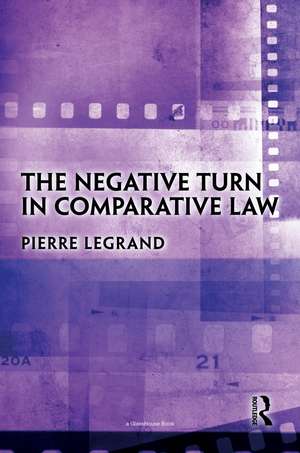The Negative Turn in Comparative Law
Autor Pierre Legranden Limba Engleză Hardback – 31 oct 2024
This book will benefit all law teachers and postgraduate law students interested in the workings of law on the international scene, whether specialists in comparative law, public international law, private international law, transnational law, or foreign relations law – in particular, individuals bringing to bear a critical inclination to their subject-matter.
Preț: 1008.02 lei
Preț vechi: 1229.30 lei
-18% Nou
Puncte Express: 1512
Preț estimativ în valută:
192.88€ • 201.93$ • 159.60£
192.88€ • 201.93$ • 159.60£
Carte tipărită la comandă
Livrare economică 05-19 aprilie
Preluare comenzi: 021 569.72.76
Specificații
ISBN-13: 9780367723033
ISBN-10: 0367723034
Pagini: 356
Dimensiuni: 156 x 234 mm
Greutate: 0.68 kg
Ediția:1
Editura: Taylor & Francis
Colecția Routledge
Locul publicării:Oxford, United Kingdom
ISBN-10: 0367723034
Pagini: 356
Dimensiuni: 156 x 234 mm
Greutate: 0.68 kg
Ediția:1
Editura: Taylor & Francis
Colecția Routledge
Locul publicării:Oxford, United Kingdom
Public țintă
Postgraduate and UndergraduateNotă biografică
Pierre Legrand teaches comparative law at the Sorbonne.
Cuprins
I Rots II No method III The set of universal human rights is empty IV Economics’s number V The invention of elsewhere VI The weft of the foreign – and Blood’s ‘ever not quite’ VII Appreciation
Descriere
This book’s essays aim subversively and resolutely to replace the hegemonic discursive frame governing comparative law.
